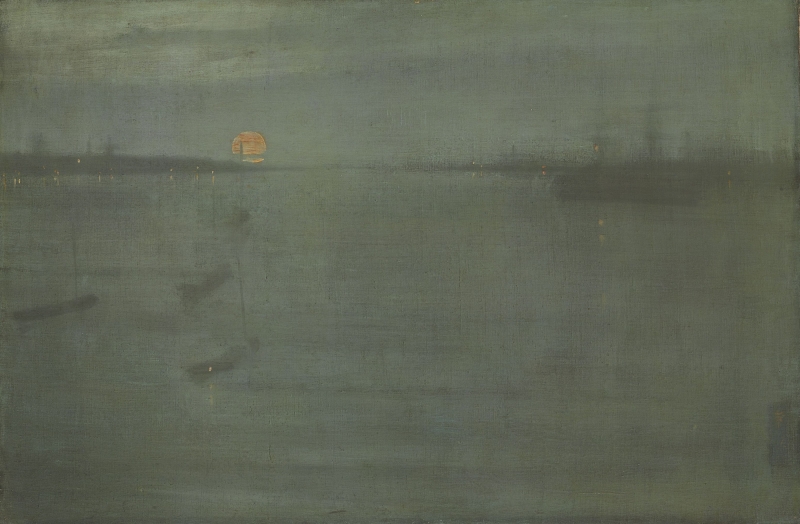Nocturne: Blue and Gold – Southampton Water probably dates from 1872. 1
It appears to be dated '1872' on the faint cartouche at lower right, but the last number is indistinct. It was probably first exhibited in the 6th Winter Exhibition of Cabinet Pictures in Oil, Dudley Gallery, London, 1872 (cat. no. 187) as 'Nocturne in Grey and Gold'.
Last updated: 19th April 2021 by Margaret






